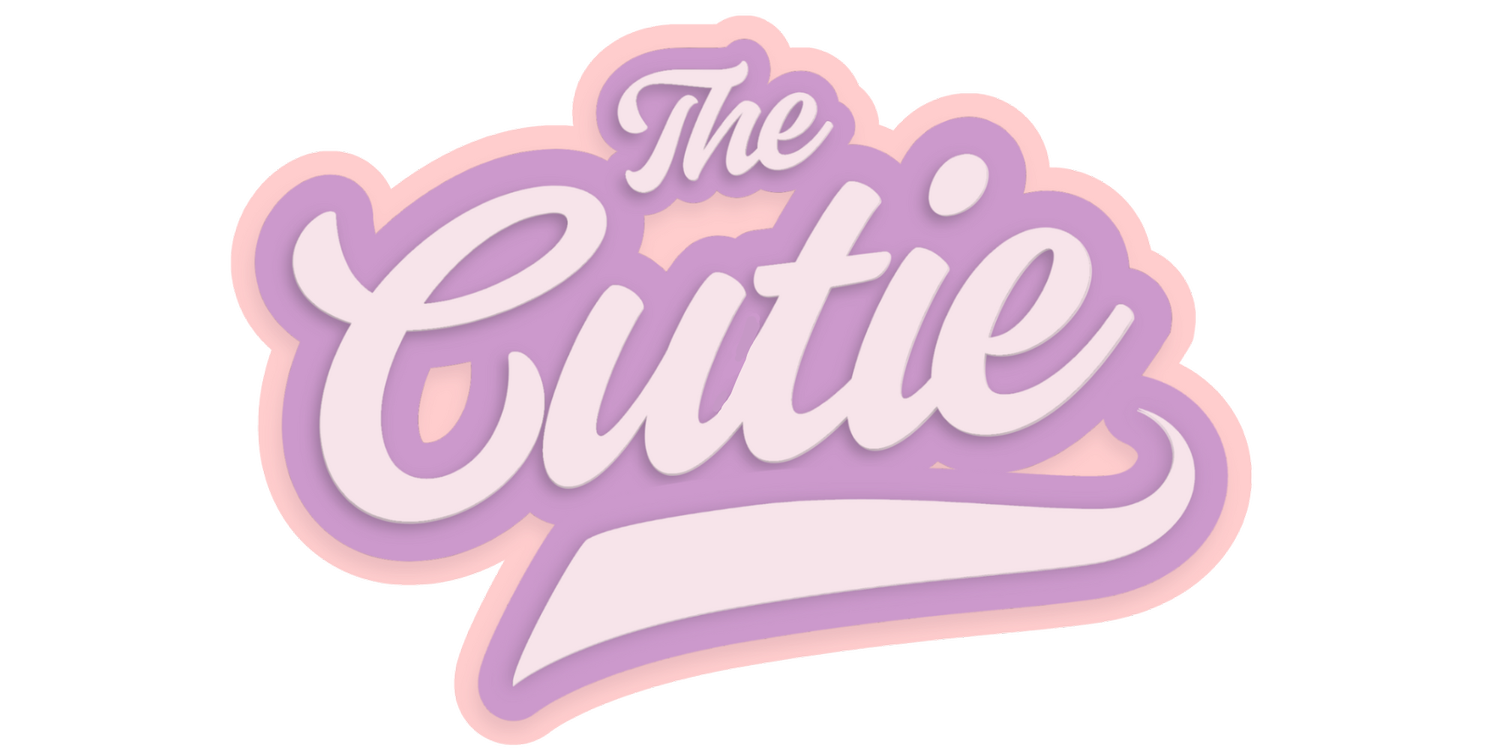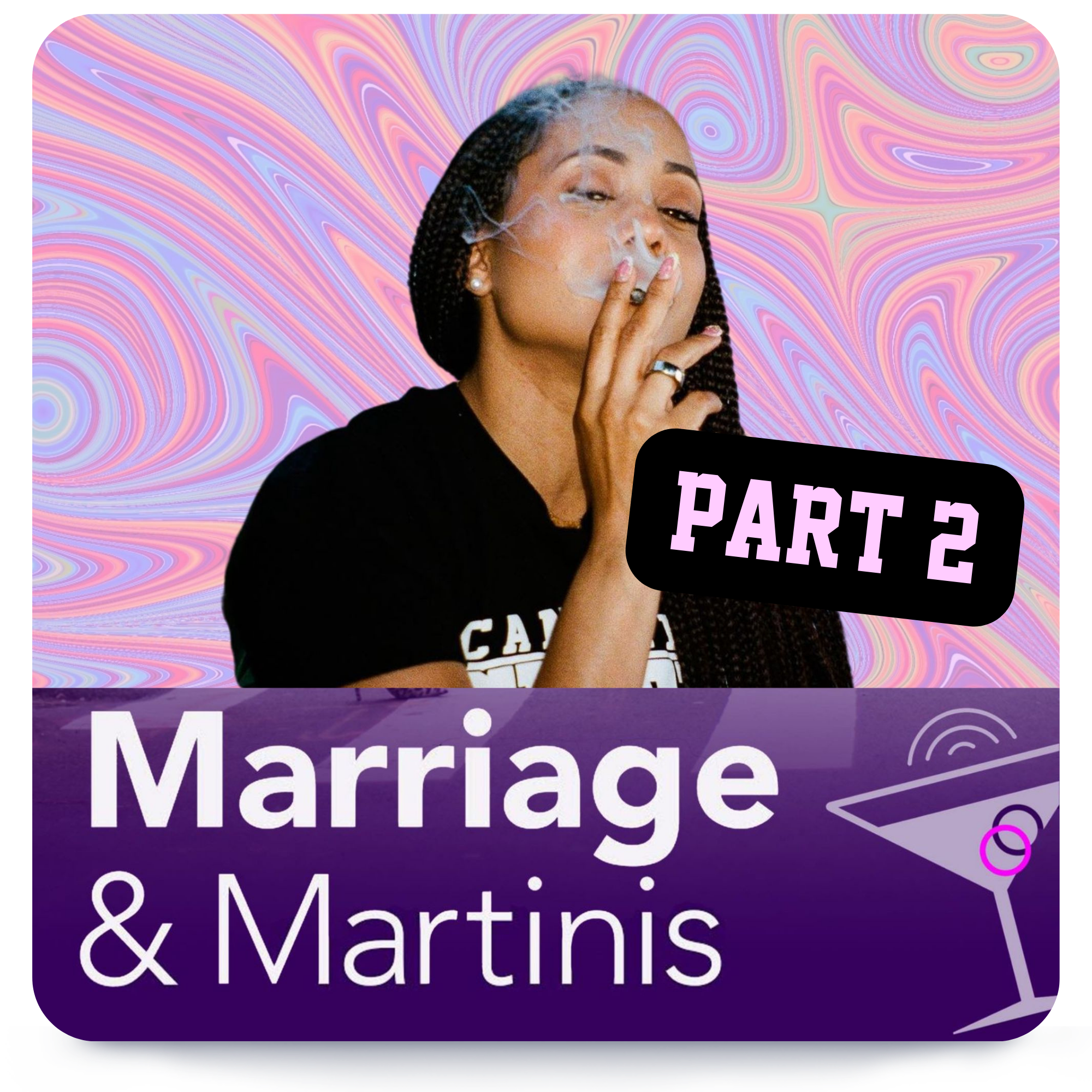The Greatest Scientific Discovery Of Our Lifetime
Plus The REAL Reason Cannabis Is Schedule 1, The Link Between Cannabis & Fertility, and Why I Don’t Believe in Mindless Smoking
We’re bringing cannabis education to the Marriage & Martinis Podcast!
Check out the highlights of our discussion below, or CLICK PLAY listen to the full interview right here.👇
Adam: Growing up in the 80s, that's when they really started the War on Drugs.
They put cannabis in the same classification as hardcore drugs. And that's what started this whole fear. How did that happen?
Tammy: That happened because whenever they were writing out legislation on drug scheduling, there was no Schedule 1.
But what these pharmaceutical drug makers were concerned about was weed competing with, for example, Valium. How’s the public going to know that Big Pharma’s drug is better than weed?
So that's when they created a separate class called Schedule 1. And that's where mushrooms are. That's where cannabis is. And that was just to create a firewall to protect their lethal, deadly, addictive opioids.
Danielle: Talk to me about smoking versus edibles and all the different ways to get high. Is there one that you recommend?
Tammy: Consumption methods are all personal preference. So I have asthma and although this is going to sound funny, my best method of consumption is smoking because cannabis is a bronchodilator.
And I like that because I'm a mom, and I would like to feel the high within 15 minutes. And I don't want to be too sleepy, like I will be with edibles.
What's going to happen when you digest an edible is it has to pass through your liver. And this Delta-9 THC is now going to turn into 11-hydroxy THC, which is way more psychoactive. It's going to last anywhere from four to six hours, maybe two to four hours.
But you could do edibles in the form of gummies, brownies, chips, almonds, or you could do a tincture. You can swallow that and let it go through your liver.
Or you can put it under your tongue and it bypasses the liver completely. It's the sublingual method. So under the tongue, in between the cheek and the gum, that's another area where you can place a strip or something like that.
And then you have topicals that are not going to get you high. For example, a CBD bath bomb or a THC bath bomb will not get you high, but it will promote relaxation within the body.
And then you have a transdermal. That's a patch that you put right over where your veins are anywhere on your body. And you're going to feel the effects because it's passing straight to the bloodstream.
Adam: This whole thing just sounds like it's a complete miracle.
Tammy: Right? It's the biggest scientific discovery of our lifetime. We've only known about it for about 30 years.
Adam: So it's medicine, you can make clothes out of it, you can make paper out of it…
Tammy: You can make fuel out of it. If we grew enough hemp in the United States, with only 16% of the land dedicated to hemp growth, we could create biofuel that we can burn.
And of course it's going to put emissions into the air. But the process of growing cannabis is a cycle and whatever waste it creates, it eats it up too.
Adam: So it's like every industry on the planet is against this thing. And that's why it's not out in the open yet.
Tammy: I mean, that's the conspiracy. Because if you use hemp to create all these products, now you no longer have plastics, you no longer have petrochemicals, and so on.
Adam: Can you name one bad thing about cannabis?
Tammy: Yeah, there are people who abuse substances. There are people who have heart problems that should not be using it.
There are people who don't understand that you have to be mindful with consumption.
There's definitely negative sides to cannabis. But I would say the most dangerous side effect is getting caught with it and going to jail.
Danielle: Yeah, and I wanted to get into the business part of it. I want to talk about everything that you're doing with your Cannabis 101 course.
But also talk about women & black women and how cannabis is helping to create business opportunities. Can you talk a little bit about that?
Tammy: In America, the entrepreneurship trend is that black women make up the majority of new entrepreneurs. I believe it's like 56% or something like that.
And then there’s the ancillary side of the cannabis space, which is just non-plant touching businesses like marketing, social media, and copywriting. Those businesses are coming from black women.
As for my course, it’s a solution to a problem. The courses I saw were either too hard to understand or the information just wasn’t relevant to people wanting to start out in the cannabis industry.
So my solution was a 101 course. It's a course about biological science, plant science, cannabis history, and the laws surrounding cannabis. And it’s meant to be easy-to-understand.
And it's quick and to the point. It's just enough to make you dangerous and to get you down that rabbit hole if you want to learn more.
And I'm also looking into creating a business course to help people understand how to set goals.
There's a lot of people who want to be the best cannabis brand there is but they don't understand their mission or their vision.
Danielle: We have a bunch of questions from our listeners. There are a lot of questions about microdosing to sleep or getting addicted?
Tammy: What happens is your tolerance will gradually get heavier. Some people may be able to smoke a joint and feel fine. But then over time, it's not enough.
So I always recommend tolerance breaks. All you need is 72 hours of abstaining to give your receptors a break.
If you can do that every six weeks, it is so much better. But yes, your tolerance can build up.
And then for addiction, there's a difference between physical addiction and psychological addiction. So physical addiction is going to be what happens with heroin, alcohol, and cocaine.
If you're a heavy user of alcohol, it’s psychological dependence if you say that you can't function if you don't have it. That's what happens with coffee addicts.
It's very similar to cannabis addicts, though a withdrawal from cannabis is going to be less severe than it is with coffee.
If you are somebody who cannot function or you don't feel good on cannabis, you need to really evaluate that.
Danielle: There’s a link between cannabis, fertility, and pregnancy, right?
Tammy: I took an entire course created by a neuroscientist on this very topic. There's a huge link to fertility. It is ruled and controlled by the endocannabinoid system.
You have those receptors and that system is in the sperm and in the egg. The receptors are all over the uterus.
Cannabinoids are made in the body, we have what's called endocannabinoids and they are naturally occurring in breast milk.
They are important when it comes to sex infertility. One of the misconceptions is that smoking cannabis can affect fertility in a negative way. And that is not the case.
Danielle: So do you recommend people to look into cannabis if they are having issues with fertility?
Tammy: Yeah, personally I’d look into that before the expensive hormone therapy.
I mean, it's a plant. It could absolutely change your life. Again, there's no doctors out there in a clinical sense that can help you walk through that.
But I would highly recommend Dr. Michelle Ross. She does her own clinical hours and she helps a lot of women walk through that when it comes to pregnancy and cannabis.
Danielle: Anything else recommend people don't do when high?
Tammy: If you don't do anything high or are generally a lazy person, wait until you're done with everything that you have to do to smoke.
For me, I don't mind doing stuff while high. But I also have to check myself because if I'm getting to a point where I’m going to go do something, but I feel I need to get high first, that's a problem.
What is the purpose of me smoking right now? Is it because it's sitting there?
If it's just because it’s sitting there, that's a really bad idea. But if I'm doing it because I want to have a good night's rest, then it's cool.
So smoking for the hell of it, I don't agree with.
Danielle: Yeah, thank you so much for talking to us. This has been a great way to learn. It makes us all a little bit more of an advocate.
Tammy: Yeah, for sure. It starts with us. We have to do it on a local level, but we have to hold our leaders accountable and really get them to stop pushing this misinformation.
But thank you so much for having me.
UP YOUR ADVOCACY
With My New Guide on How to Be a Cannabis Advocate
FREE When You Subscribe to Cutie Insider Updates
*The information we provide is not intended to be a substitute for medical treatment. Please consult your medical care provider. Read our full Health Disclaimer.



